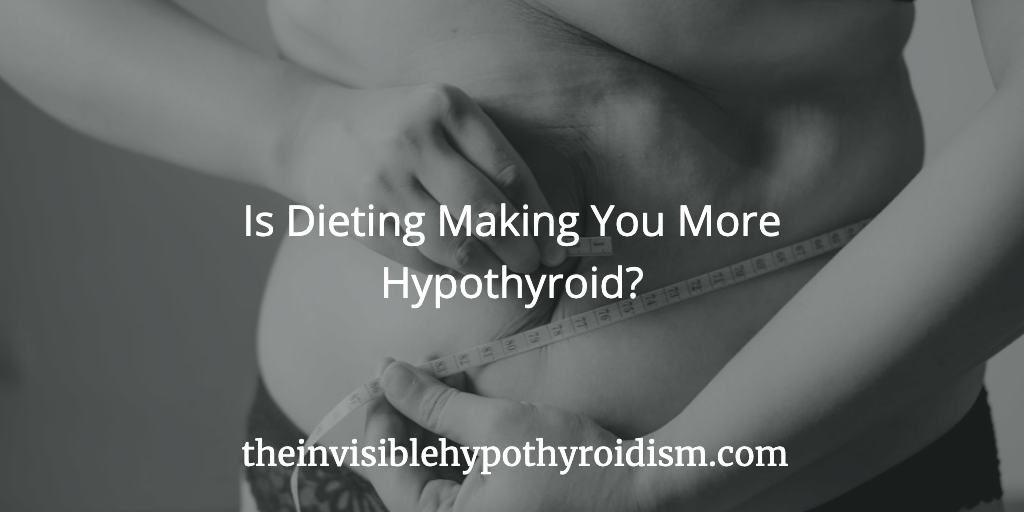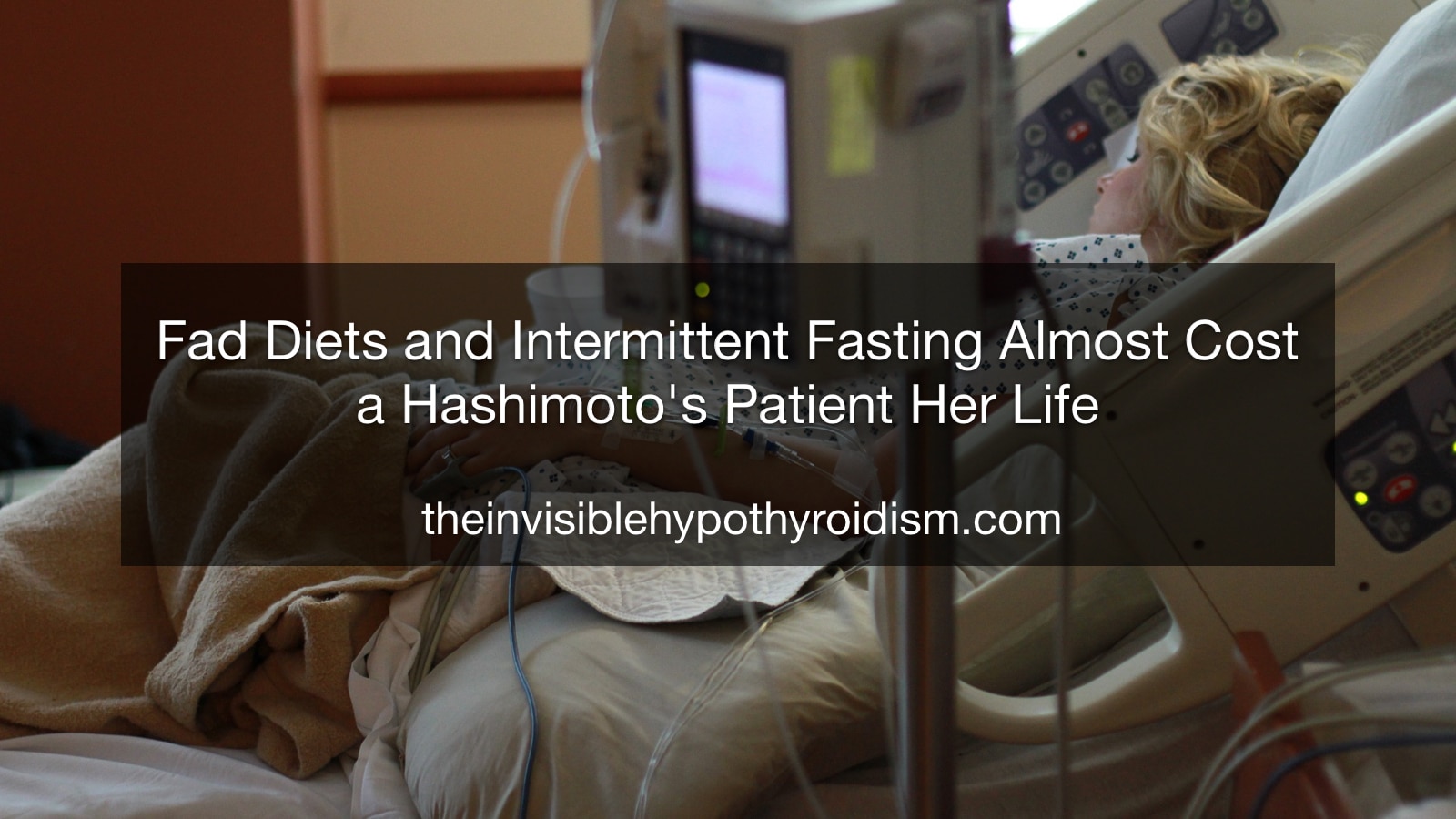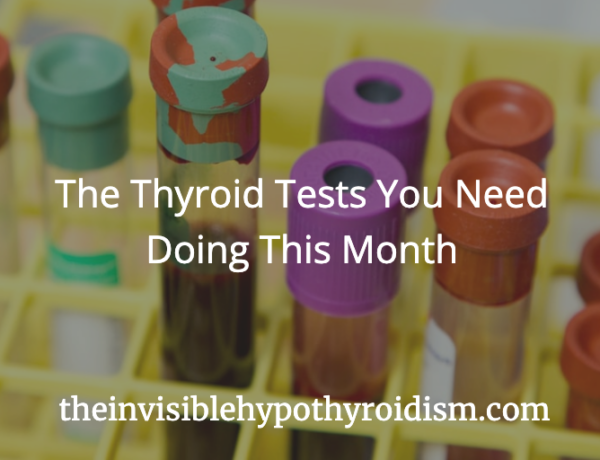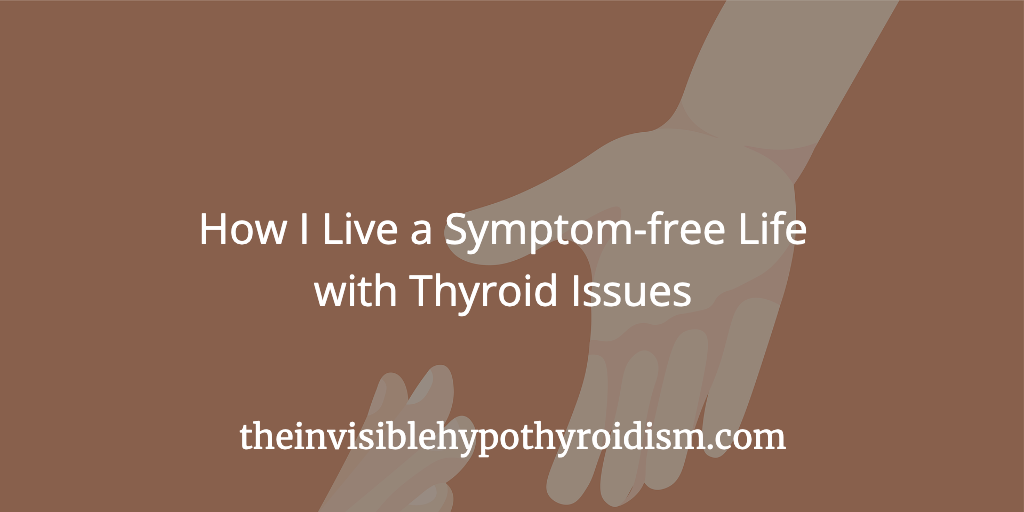Originally published on 10th April 2018 Last updated on 11th March 2024
Weight gain and fluctuations are a very common symptom of an underactive thyroid or hypothyroidism.
However, many thyroid patients are taking to dieting by severely reducing calories or cutting out whole food groups, in an attempt to lose weight, and may actually be making their thyroid issue worse.
Are Low-Calorie Diets Making Us Worse?
For many thyroid patients who go on low-calorie diets or start cutting out food groups in a bid to lose weight, they just don’t seem to work. People often do not lose weight, carry on gaining weight despite dieting, or lose weight but soon gain it back.
I’ve heard from literally thousands of thyroid patients who ask why this happens. And it’s quite simply because hypothyroidism is so involved with our metabolism, and our reaction to weight gain may exacerbate this.
Dieting Reduces Active Hormone Levels
This scenario of being unable to lose weight and keep it off becomes even more common when someone repeatedly goes on low-calorie diets, or struggles with yo-yo dieting (repeated loss and gain of weight).
What many thyroid patients don’t know is that chronic dieting can reduce Free T3 levels, the active thyroid hormone, causing the metabolism to slow down even further and weight loss to become even more difficult as time goes on. T3 is crucial for the functioning of every cell and function of the body, from brain function to bowel movements and energy. And the metabolism is in charge of our energy levels, production, body heat and thus, weight loss and gain.
Studies have found that dieting can reduce metabolic function hugely. One particular study published in the American Journal of Physiology, Endocrinology and Metabolism, showed that even twenty-five days of restricting calories can result in a significant reduction of T3, due to less T4 converting to the T3. It resulted in a 50% reduction in T3, which, as already explained, affects everything including your metabolic function.
Cortisol and Weight
The adrenal glands produce a range of hormones, including cortisol. If your adrenals detect that you are under stress, they tend to produce more of this stress hormone.
One type of stress? Restricting calories.
When you restrict calories, increased cortisol starts signalling that food is scarce and to slow down your metabolism as a result, storing fat as its survival mechanism.
If you ignore these signals from your adrenals, and carry on pursuing a low calorie diet, you are reaffirming to your body that food is indeed scarce and therefore it will keep up this survival mechanism.
Why Attempts To Lose Weight and Keep it Off Often Fail
Unless the effects of chronic dieting are addressed, such as low T3 levels and adrenal dysfunction (which often drives Reverse T3 levels up), attempts to lose weight and keep it off will often fail.
Where a lot of thyroid patients struggle is convincing their doctor to test Free T3 levels in the first place. Addressing any non-optimal levels in these can help a lot of thyroid patients to not only lose weight if they wish, but also shift many other thyroid symptoms including fatigue, poor stamina, muscle aches and more.
Your Set Point
There is also something called your weight ‘set point’ which you should take in to consideration. Your ‘set point’ is the brain’s target weight for you. It is therefore individual and thyroid patients can have an even further altered set point. [1]
Just as the body aims to maintain a normal body temperature, it also works to maintain a body weight that is physiologically comfortable. The ‘set point’ is maintained by the hypothalamus and is often genetically influenced, however, a number of things can cause this ‘set point’ to change, including making it a higher or lower number. Chronic dieting is the main cause for an abnormal ‘set point’, whereby it can result in slower metabolism as explained previously.
Ways to address this can include reaching optimal thyroid levels, a more consistent diet and calorie intake (no more yo-yoing, fad diets or calorie restrictions), consistent exercise (no more overexercising followed by needing to heavily rest due to the damage going too far does) and effectively managing Hashimoto’s.
Your Weight Isn’t The Sole Indicator of Your Health
When it comes to weight gain and weight fluctuations with hypothyroidism, I do understand the frustrations. My weight has fluctuated a lot with hypothyroidism and what I have learned in my bid to try and lose weight with frequent yo-yo dieting and calorie restrictions, is that my physical health is so much more important than how I look in the mirror, or my weight alone.
Often, if we focus on feeling physically well, such as reaching optimal thyroid levels, vitamin levels and ensure good adrenal health, our bodies tend to drop any extra pounds that it doesn’t need anyway.
I just want thyroid patients to be aware that often, dieting and calorie restrictions place extra stress upon the body, that it just doesn’t need when it’s already balancing chronic illnesses and hormone imbalances such as hypothyroidism.
As well as the studies that demonstrate how dieting can in fact make you more hypothyroid, the effects of denying yourself adequate fuel in the form of food, can include fatigue, drowsiness, blood sugar imbalances, mental health risks and more, in terms of physical proof. You’re not likely to recover from your health conditions if you’re denying it proper nutrition and fuel.
The Pressures of Losing Weight for Big Events
When I got married, I knew the pressures of dieting ‘to get slim’ for the big day.
However, I learned to make peace with my body and instead of chronic dieting, calorie counting and weighing, I decided to instead focus on eating healthily and exercising as and when my hypothyroid body allowed (you can over-exercise), and made peace with how my body looked with it all.
In short, I focused on feeling healthy inside and nourishing and looking after my body, instead of putting my already struggling body under more stress and pressure.
Related Post: Why I Don’t Focus on Weight as a Thyroid Advocate
And I don’t regret it one bit. I didn’t lose any weight for my wedding in the end but I look back at my photos and wedding day knowing that I enjoyed it fully because I felt well. Had I carried on limiting calories, dieting and putting my body under that much stress, I would have carried on feeling mentally and physically ill and not been able to fully enjoy the occasion.
How do you feel about this topic? Share your thoughts in the comments below.
You can click on the hyperlinks in the above post to learn more and see references to information given.
References:
[1] https://www.ncbi.nlm.nih.gov/pmc/articles/PMC4237899/








6 Comments
Angela
April 12, 2023 at 11:50 amI was diagnosed with hypothyroidism when I was 24. I had gained 4 stone before being diagnosed. I have done sll sorts of diets since then with no weight loss apart from when I was pregnant and my Thyroxine was increased and each pregnancy I lost 2 to 2 1/2 stone, but then medication reduces post partum and gained it back at speed. I have three children. In 2021 aged 47, I did lots of research and started the Paleo diet (no gluten, dairy or soya) eating all fresh foods, cooked myself, no processed foods. I lost 4 stone from 1st Feb 2021 to 30th Oct 2021. Amazing. I felt so much better. But then January this year felt I was struggling with perimenopausal symptoms started HRT patches and it’s all gone to pot again. HRT has messed with my Thyroxine (even though they said it wouldnt) I have gained 1 1/2 stone and I feel dreadful. Started feeling hungry all the time sgain too. Hoping I can get back on it before any more damage is done.
Sandra
April 4, 2022 at 9:25 amAfter a lifetime of battling thyroid issues and yoyo dieting I now have had a total thyroidectomy and onLevothyroxine. I have gained weight and suffer terrible exhaustion which has been annoying me. Your article has been very interesting and helpful. I follow all your articles.x
Catherine
January 6, 2021 at 9:23 amI’ve completely felt broken lately do to weight gain. I feel lost and not sure what next to do and reading this article helped calm some anxiety as I still deal with a lot more.
Gill Turton
July 8, 2019 at 8:18 pmI believe that chronic dieting for years led to my thyroid problems now
Anahi E
December 6, 2022 at 6:36 pmI believe the same, this is terribly sad.
Maryjo
September 8, 2018 at 11:48 pmThis is actually useful, thanks.